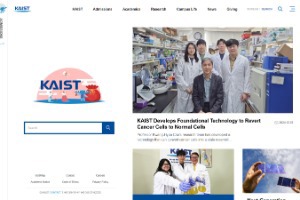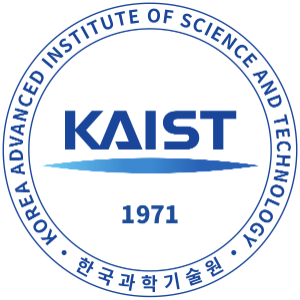KAIST - Korea Advanced Institute of Science & Technology
Institute Profile
Get a quick snapshot of the institute's key details.
| Ranking |
2025
#2
|
|---|---|
| University Name | KAIST - Korea Advanced Institute of Science & Technology |
| Name in Local Language | 한국과학기술원 |
| Acronym | KAIST |
| Year Established | 1971 |
| Governing Type | Public |
| Student Body | Co-education |
| Highest Degree | Doctorate |
| Campus Type | Sub-urban |
Location
The institute is located in Yuseong-gu, Daejeon. Find the address and map of the institute below.
| Address | 291 Daehak-ro(373-1 Guseong-dong), Yuseong-gu, Daejeon, South Korea |
|---|---|
Contact
Connect with the institute easily! Find their contact details.
| Phone | +82-42-350-2114 |
|---|---|
| Fax | +82-42-350-2210 (2220) |
| Website |

|
| Click here to send email | |
| More Links |
Admission Info
The admission process at KAIST is highly competitive, with different requirements for domestic and international applicants. International students must submit academic transcripts, proof of English proficiency (such as TOEFL or IELTS), and may be asked for additional materials such as personal statements or letters of recommendation. Undergraduate applicants are typically required to take the KAIST Entrance Exam, while graduate applicants are assessed based on their academic record, research interests, and relevant experience. The university also looks for students who demonstrate a passion for technology and innovation. Prospective students should consult the specific program's admission criteria for detailed information.
Scholarship and Financial Aids
KAIST offers numerous scholarships to attract top-tier talent from around the world. Scholarships are available for both undergraduate and graduate students and are awarded based on academic excellence, financial need, and research potential. For international students, KAIST provides generous scholarships that cover tuition, living expenses, and sometimes even airfare. Additionally, there are various research-based scholarships for graduate students, enabling them to focus on their studies and research without the burden of financial constraints. KAIST's commitment to supporting its students financially ensures that those with the drive and ambition can access world-class education regardless of their financial background.
Programs and Courses
Get a quick overview of programs and courses offered at this institute.
| Bachelor's Degrees | Master's Degrees | Doctorate Degrees | Diplomas | |
|---|---|---|---|---|
| Arts & Humanities | n/a | n/a | n/a | n/a |
| Business & Social Sciences | n/a | n/a | n/a | n/a |
| Engineering | n/a | n/a | n/a | |
| Language & Cultural Studies | n/a | n/a | n/a | n/a |
| Medicine & Health | n/a | n/a | n/a | n/a |
| Science & Technology | n/a | n/a | n/a |
Click on the following button to explore a detailed list of programs and courses of this institute.
View Course ListGlobal Ranking History
The following chart shows how the global ranking of this institute has changed over the last 5 years.
Related Articles
Stay informed with the following articles related to the institute or higher education in South Korea.

